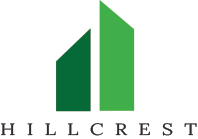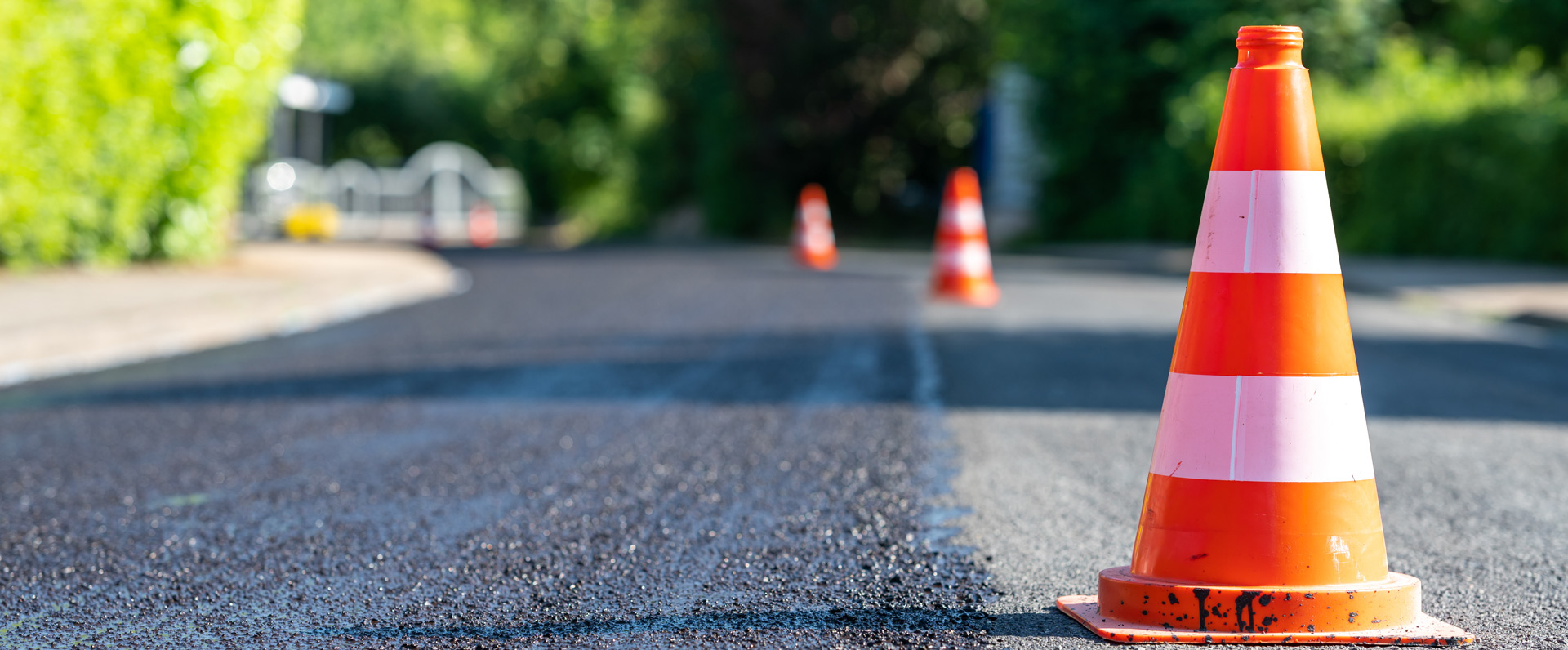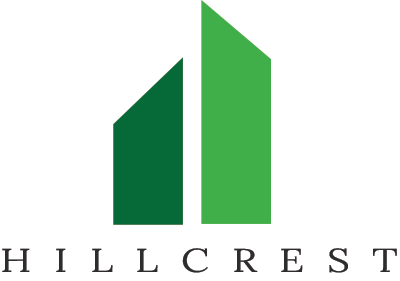Asphalt lot paving in HOA communities is crucial in maintaining safety, curb appeal, and property values. Properly paved and maintained parking lots and driveways ensure a smooth driving experience and enhance the overall look of the neighborhood.
Understanding the Popularity of Asphalt Lot Paving in HOAs
Asphalt is a popular choice for HOAs for several reasons. It’s durable and long-lasting, typically serving a community for 15 to 20 years with proper maintenance. Its flexibility also allows it to withstand temperature fluctuations, making it suitable for Chicago’s freezing winters and hot summers.
Compared to other paving materials like concrete, asphalt is also more cost-effective. Installation costs tend to be lower, and repairs are generally easier and cheaper. Asphalt also enhances curb appeal with its clean, sleek look.
Beyond that, asphalt is relatively easy to maintain. Regular cleaning, crack sealing, and seal coating help prolong its lifespan. If there is any damage, a contractor can quickly patch it.
Costs Of Asphalt Lot Paving in HOA
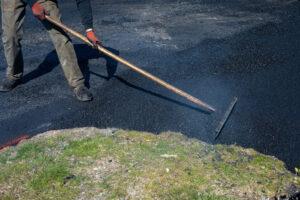
The cost of asphalt lot paving in HOA communities depends on several factors. Understanding these factors can help HOAs budget effectively and avoid unexpected expenses.
- Size and Area. The larger the area, the higher the cost, which is usually calculated per square foot.
- Asphalt Thickness and Quality. Thicker layers provide better durability but come at a higher price. The quality of the asphalt mix can also influence the cost.
- Site Preparation and Grading. Proper grading ensures water drainage and prevents puddles and cracks. The cost increases if the site needs significant preparation.
- Drainage Requirements. Adding drainage solutions such as culverts or catch basins can raise expenses. These measures have benefits, as they prevent costly water damage in the long run.
- Local Labor and Material Costs. Prices vary depending on local supply and demand, labor rates, and material availability.
On average, asphalt paving in Chicago ranges from $2.50 to $7 per square foot for basic installation. More complex projects, like heavy-duty parking lots or roads, can cost between $7.50 and $15 per square foot.
HOAs should get multiple quotes from candidates to ensure the best contractor and deal. This will allow boards to compare costs and services. Additionally, it is a good idea to include a buffer in the budget for unexpected issues, such as drainage issues and additional site preparation.
How to Maintain Asphalt Paving for HOA Communities
Proper maintenance is essential to extend the life of asphalt lots and keep them looking good. Here are some practical maintenance tips for maintaining HOA asphalt lot paving.
1. Routine Cleaning and Debris Removal
It is imperative to remove leaves, dirt, and debris regularly. This will help prevent water buildup and deterioration. Sweeping the lot every few weeks also maintains cleanliness and prevents clogging of drainage systems.
2. Crack Sealing
The HOA should address any cracks early on. This will prevent water from seeping into the base layer, which can lead to potholes and extensive damage. When cracks appear, the board should contact their contractor immediately.
3. Sealcoating
It is essential to apply a seal coat every two to three years to protect the asphalt from UV rays, water, and chemicals like oil and gas. Sealcoating also restores the rich black color, enhancing curb appeal.
4. Pothole Repairs and Patching
When potholes form, fixing them as soon as possible is imperative. Doing this will help avoid further damage and keep safety hazards at bay. For minor issues, you can use cold patch materials. On the other hand, for larger potholes, professional assistance is often necessary.
5. Line Striping
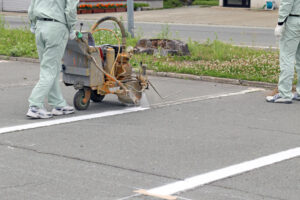
Boards should repaint parking lines, arrows, and other markings every few years to maintain organization and safety. This will help improve the appearance of asphalt parking lot paving in HOA communities.
Planning for Major Paving Projects
In Chicago and its suburbs, weather can drastically shorten the life of parking lots and sidewalks if they don’t get proper maintenance. Potholes and other uneven areas can also be a safety concern. For a survival guide, we interviewed Todd Eichholz, CEO of A&A Paving in Roselle, IL, as his team has extensive experience with Chicagoland community association lots and sidewalks.
There are a few key things to address when considering a paving project. For example, did you know you can create custom stencils for your parking lot? The sky is the limit when it comes to striping. You can stripe in a logo or other custom message. Here are two other very important considerations when planning for paving in a community association.
Asphalt Parking Lot Cost’s “Dirty Little Secret”
There’s a dirty little secret in the paving industry that nabs the paving-uneducated. The secret is around the word “compact.” Let’s compare language from two proposals:
- “Install 4 inches of asphalt and then compact”
- “4 inches of compacted asphalt”
These two statements are not an apples-to-apples comparison. What matters is final compacted thickness.
A parking lot should be at least 4″ of compacted asphalt (driveways should be 3-4″). The first proposal will have at least 25% less asphalt installed, and the price will be 15-18% cheaper (it is a tactic to win bids). Always ask how thick the pavement will be after it is compacted.
3 Ways to Minimize Community Disruption
Here are planning steps to minimize community disruption when it comes to asphalt lot paving in HOA communities.
- Communicate well in advance of the paving project exactly what will happen and when. Include detailed phasing maps from your vendor.
- If residents are displaced during the project, consider a vendor with a golf cart shuttle service to drop people at their cars so they avoid long walks.
- Consider any residents with disabilities. Some vendors provide extra assistance for them during the paving project.
Maintenance of Asphalt Lot Paving in HOA
Parking Lots
With proper maintenance, a brand-new parking lot should last 25 years before it needs to be completely torn up and re-paved. An asphalt parking lot maintenance plan to achieve this is as follows:
- Annually, fill cracks.
- Every 2 years, assess if you need to sealcoat now, or if you can wait one more year. Whether you sealcoat every two or three years depends on the amount of traffic on the pavement. Do not wait longer than three years. This is the time to patch any small issues that can be repaired now to avoid a larger, more expensive issue.
- At the 6 to 8-year mark, you may need to do some patching around the sewer inlets (catch basins) and near dumpster corrals.
- At 12-15 years, you’ll need either large-scale patching or milling off of the top 1.5-2″ of asphalt and replacing this surface layer.
Sidewalks
Water is the biggest factor in sidewalk health, particularly standing water. Ensure water can flow off the sidewalks rather than be blocked by overgrown turf.
Another common issue with sidewalks is settling. Mudjacking is a method of raising concrete to address this issue.
Another best practice for preserving sidewalks through tough winters is to use calcium chloride deicers instead of standard rock salt on all concrete surfaces. This will prevent pitting and significantly extend the sidewalks’ life.
Avoiding Chicagoland Lawsuits
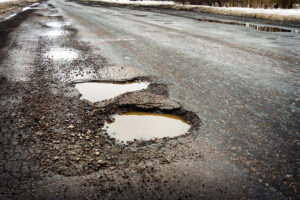
Cracks in asphalt and concrete are primarily an issue in winters like those in Chicago and its suburbs. When water continually freezes and thaws in cracks, issues like potholes and sudden uneven spots in sidewalks occur.
The average settlement for a “trip and fall” incident in a parking lot is around $40,000. With the above maintenance plans, including annual crack sealing, you can avoid lawsuits and expensive asphalt or concrete replacement years earlier than otherwise.
How to Choose a Paving Contractor
Good contractors do not try to trick you with the aforementioned “dirty little secret.” Great contractors also include in their proposal how many tons of asphalt they’ve calculated in the quote. If you don’t see this, be sure to ask.
Additionally, when choosing a contractor, read reviews. It may seem obvious but don’t skip the step to find out a vendor’s star ratings and read why people rated them that way.
Finally, evaluate the ways in which the vendor offers to help you have a successful project. Community projects require the most care and planning of all paving projects since they involve the homes of many people. If your vendor has a passion for the people of the business, it will be evident in the ways in which they help.
Invest in Asphalt Lot Paving in HOA Communities
Asphalt paving is undoubtedly a popular choice for many homeowners associations — and for good reason. If your HOA board wants to invest in the same, it is critical to know the costs and maintenance that go into it.
Hillcrest provides expert HOA management services, including help with lot maintenance. Call us today at 630-627-3303 or contact us online to request a proposal!
RELATED ARTICLES:
- Sustainability In HOAs: Save Money And Go Green
- Who Handles Stormwater Pond Maintenance In HOAs In Chicago?
- Condo Plumbing Issues: Repair Responsibilities And Maintenance
